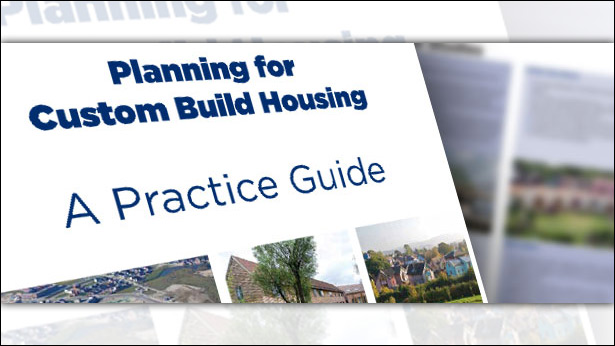
30 November 2012
A new guidance document – launched today – sets out all the many ways planners and custom build developers can make it easier for people to build their own homes.
The Guide explains the recommendations on self build that are contained in the National Planning Policy Framework (NPPF), and identifies a range of ways in which planners and others can ‘enable’ more self build development in the future.
{TEASER}
These include:
- Encouraging larger scale self build communities – like those that are already underway in Continental Europe
- Using council owned land to proactively facilitate self build projects
- Setting a target for a certain proportion of new homes to be self builds when allocating sites, or planning for new homes
- Treating modest low cost self builds as ‘affordable’ housing
- Specifically encouraging self builds is certain areas – for example on ‘infill’ sites, or as small scale extensions on the edge of towns or villages
The Guide asks planners to be ‘custom build friendly’ and avoid jargon and red tape. It also reminds local planning authorities that they should not impose unnecessary conditions, expensive planning obligations or onerous community infrastructure levies which affect the viability of projects.
A separate section explains the methods planners can use to measure the local level of demand there is for people that want to build their own homes. This is an important feature of the NPPF, as all local authorities now have to assess self build demand levels, and then make provision for self builders, where there is a proven demand.
The Guide has been welcomed by the Housing Minister, Mark Prisk, MP who said:
“I am grateful to the National Self Build Association for taking the initiative to produce this Guide. I want to ensure that self build housing becomes a mainstream housing option so that many more families get the opportunity to build their own homes.”
“Demand for self build plots is growing fast, mortgage lending is increasing and more builders are offering self build development options. There are also many local authorities now actively encouraging more self build development locally. I hope this Guide will help them take their plans to the next level and enable other councils to adopt similar strategies,”
said the Minister.
Self Build Industry Champion, Grand Designs presenter Kevin McCloud, called for a new spirit of collaboration between planners, communities and the construction industry:
“I’ve always believed planning isn’t about stopping people doing things; at its best it’s about enabling people to do things – so I’d urge planners to read the Guide and do everything they can to support the millions of people in the UK that want to build their own homes.”
The 24 page document has been written by two experienced town planners active in the self build sector – Sally Tagg , the managing director of FoxleyTagg Planning, and Julia Riddle, an associate director of DTZ. Feedback was also received from officials at the Planning Inspectorate and the Department for Communities and Local Government.
It is available free of charge and can be downloaded from the Technical Downloads section of The Self Build Portal.
As the whole subject of using the planning system to encourage self build is still quite new, it is intended that the Guide will be a ‘living’ document that will be updated regularly as further Good Practice becomes available.
“While planners obviously have a key role the Guide should also be useful to local authority housing teams, custom build developers, registered social landlords and community groups that are developing their ideas for group self build projects,”
said Ted Stevens, the chair of NaSBA.
“We know of at least 50 local councils that are already looking to support self builders, and we hope this Guide will act as a roadmap for all the others as they work out how they can help the thousands of local people in their areas that want to build their own homes.”



